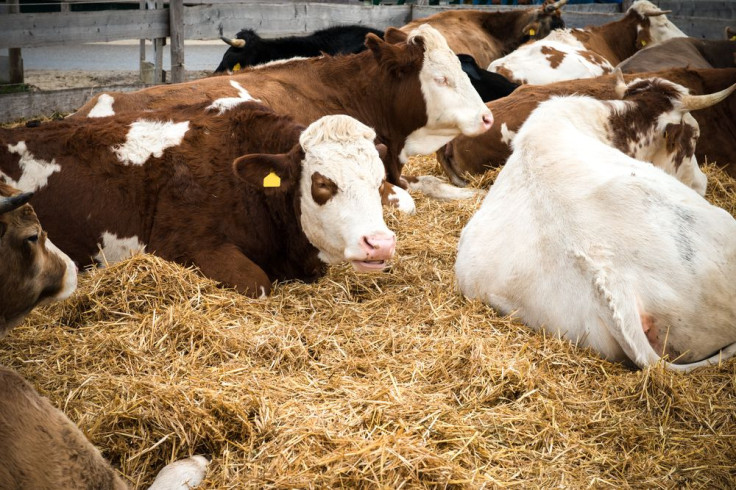Needless Use Of Antibiotics In Agriculture Promotes Resistant 'Superbugs': Experts

Is the use of antibiotics in agriculture fueling a public health crisis? According to a new study from the University of Calgary, antibiotics fed to livestock accelerate the emergence of new, resistant strains of bacteria. Now, experts are calling on officials to curb the practice by imposing fees and other disincentives.
Today, about 80 percent of the nation’s supply of antibiotics is used in agriculture. Farmers spray them on fruit trees and feed them to cattle, poultry, pigs, and other livestock. While industry officials deem it a necessary measure to keep animals and plants healthy, many experts argue that the practice is just a way to offset the burden of unsanitary living conditions. "It's about increasing the efficiency of food so you can reduce the amount of grain you feed the cattle," Aidan Hollis, economist and co-author of the study, said in a press release. "It's about giving antibiotics to baby chicks because it reduces the likelihood that they're going to get sick when you cram them together in unsanitary conditions.”
"The real value of antibiotics is saving people from dying,” he added. “Everything else is trivial."
Hollis and his colleagues are not worried that the agriculture industry will “use up” the supply of antibiotics. Rather, they fear that continued overuse will lead to the rise of antibiotic-resistant “superbugs” that current medication cannot kill. A bacterium, like all life, is subject to evolutionary changes, and adapts quickly in the face of adversity. In a world where antibiotic agents proliferate, only the strongest pathogens survive.
According to Hollis, widespread antibiotic resistance would have devastating consequences. "Modern medicine relies on antibiotics to kill off bacterial infections. This is incredibly important,” Hollis explained. “Without effective antibiotics, any surgery – even minor ones – will become extremely risky. Cancer therapies, similarly, are dependent on the availability of effective antimicrobials. Ordinary infections will kill otherwise healthy people."
To rein in the use of antibiotics in agriculture, Hollis recommends that lawmakers impose a user fee. This way, farmers would be encouraged to limit their use to actual infections and illnesses. In addition, the fee would promote the use of better substitutes, such as vaccines.
The current study is latest in a long line of efforts to illuminate the alarming rise in antibiotic resistance. Another example is an August paper in the Journal of the American Society For Microbiology, in which researchers show that the prevalence of “superbugs” is much higher than official estimates from the Centers for Disease Control and Prevention (CDC). Another study from the University of Utah shows that U.S. physicians still overprescribe so-called broad-spectrum antibiotics for common illnesses.
Published by Medicaldaily.com



























